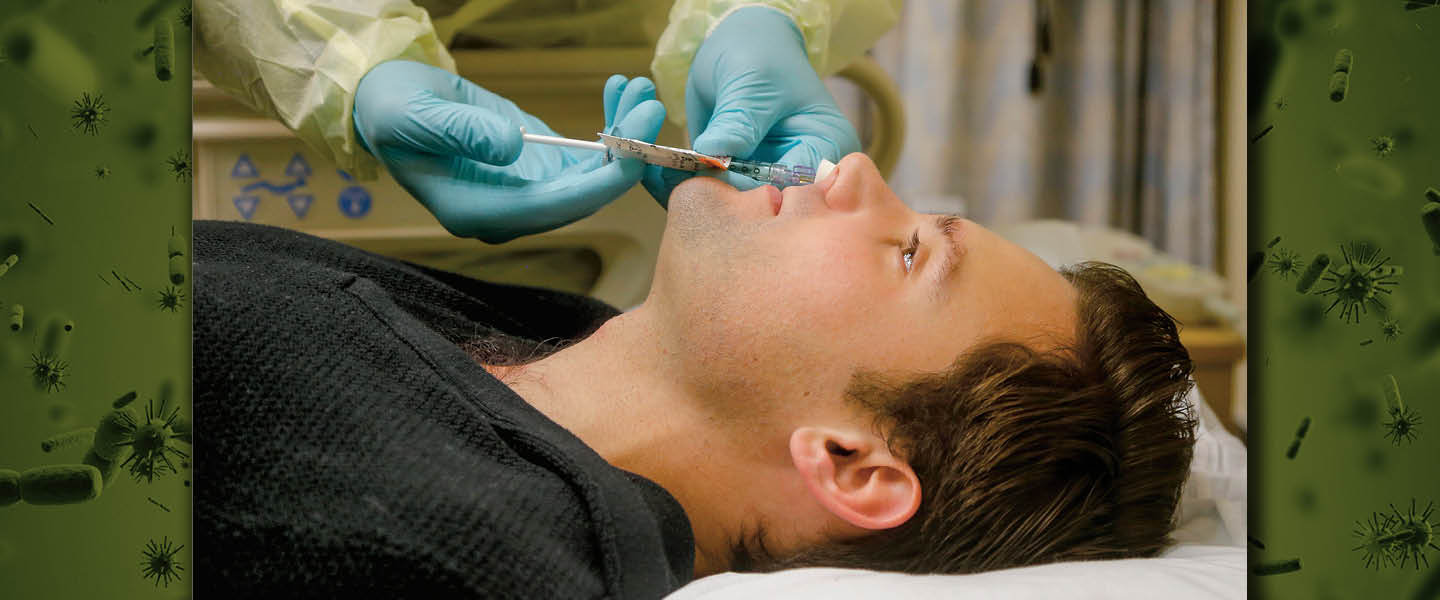One recent morning in Baltimore, Maryland, Alexander Laurenson, 26, strode into a small room to have his arm preyed upon by mosquitoes. To make his skin more attractive to the pests, which are drawn to body odor, he hadn’t showered. And the mosquitoes had been infected with malaria, a disease that kills more than 600,000 people a year worldwide.
Laurenson was part of a study at the University of Maryland School of Medicine to test a new antibody designed to prevent malaria transmission. Specifically, he’d agreed to take part in a human challenge trial, in which volunteers are knowingly infected with a pathogen (an organism that causes disease).
Researchers had secured the room to ensure the mosquitoes wouldn’t escape, with a bug zapper and a few electrified paddles on the wall as extra precautions. One by one, more than 20 volunteers shuffled in to serve as prey.
In Baltimore, Maryland, Alexander Laurenson, 26, walked into a small room to have his arm bitten by mosquitoes. He hadn’t showered so that the mosquitoes would be drawn to his body odor. The mosquitoes had also been infected with malaria, a disease that kills more than 600,000 people a year worldwide.
Laurenson was part of a study at the University of Maryland School of Medicine to test a new antibody designed to prevent the spread of malaria. Specifically, he’d agreed to take part in a human challenge trial. During the trial, volunteers are knowingly infected with a pathogen (an organism that causes disease).
Researchers had secured the room to ensure the mosquitoes wouldn’t escape. They added a bug zapper and a few electrified paddles on the wall as extra precautions. One by one, more than 20 volunteers went in to serve as prey.

